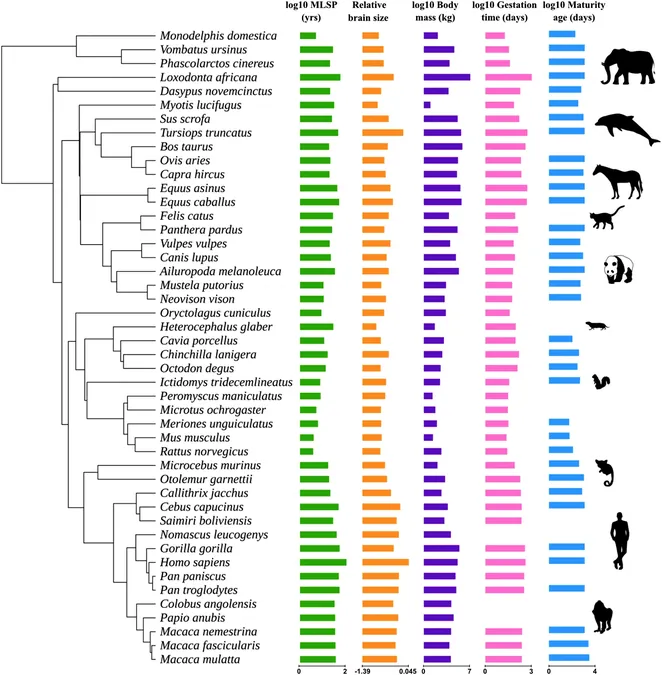
Why Some Animals Live for Centuries While Others Fade Away in Days: The Secrets Revealed!
2025-08-23
Author: Emily
The Astonishing Lifespans of Animals
Imagine a creature like the Bowhead whale, basking in the Arctic waters for over 200 years, while the tiny shrew barely sees the clock tick past a year. Then there’s the ancient sea sponge, quietly existing for more than 15,000 years. What accounts for this incredible difference in longevity?
Decoding the Genetic Blueprint of Longevity
Instead of pinpointing a single 'longevity gene,' researchers shifted their focus to the fascinating world of gene families—groups of related genes that have duplicative tendencies over evolutionary time. This duplication allows for flexibility in function, enhancing the resilience of species with longer lifespans.
A Groundbreaking Study
Dr. Benjamin Padilla-Morales, leading this pioneering study at the University of Bath, and his team scrutinized the genomes of 46 mammal species, aiming to unveil the secrets behind their respective maximum lifespan potentials (MLSP). They correlated the longest recorded age of each species with the sizes of thousands of gene families.
The Immune System: The Key to Longevity?
Strikingly, the research uncovered that the largest gene families in long-lived mammals relate profoundly to immune functions. These genes play crucial roles in identifying and eliminating cellular debris and potential threats, leading to more stable physiology over the years.
Brains Matter: The Connection Between Intelligence and Longevity
Interestingly, species with larger brains relative to their body size also tend to enjoy longer lives. This study revealed that many of the same gene families associated with longevity are also related to brain size, suggesting a symbiotic relationship between cognitive capacity and lifespan. A large brain requires extra energy and support, which correlates with enhanced immune functions.
Busting Myths: What Doesn't Influence Lifespan?
Do bigger bodies necessarily translate to longer lives? Not according to this study! The research found no significant connection between body mass or reproductive traits and the trends observed in gene family sizes. This goes to show that the keys to longevity lie deeper within the specific gene families targeted towards maintenance and defense.
What About Humans?
Human genes connected to longevity also show a vivid enhancement in their activity, producing varied protein versions that boost cellular adaptability. This genetic diversity arms our cells with a robust response system to various challenges.
The Bigger Picture: Implications for Longevity Research
While these findings do not offer a cure for aging, they highlight vital gene families that enhance immune response and cellular upkeep. The longevity of mammals isn't a mystery of metabolic magic but rather an intricate dance of genetic resilience. Recognizing these links could redefine how we approach healthy aging, emphasizing immune health and cellular maintenance as key factors rather than merely chasing elusive genetic solutions.









 Brasil (PT)
Brasil (PT)
 Canada (EN)
Canada (EN)
 Chile (ES)
Chile (ES)
 Česko (CS)
Česko (CS)
 대한민국 (KO)
대한민국 (KO)
 España (ES)
España (ES)
 France (FR)
France (FR)
 Hong Kong (EN)
Hong Kong (EN)
 Italia (IT)
Italia (IT)
 日本 (JA)
日本 (JA)
 Magyarország (HU)
Magyarország (HU)
 Norge (NO)
Norge (NO)
 Polska (PL)
Polska (PL)
 Schweiz (DE)
Schweiz (DE)
 Singapore (EN)
Singapore (EN)
 Sverige (SV)
Sverige (SV)
 Suomi (FI)
Suomi (FI)
 Türkiye (TR)
Türkiye (TR)
 الإمارات العربية المتحدة (AR)
الإمارات العربية المتحدة (AR)